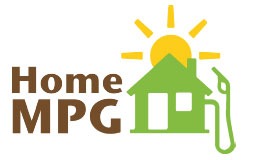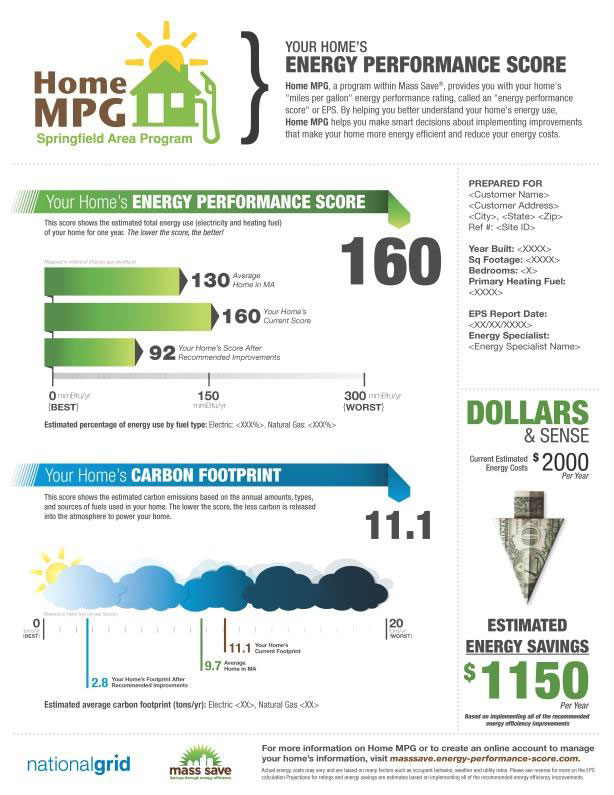
SECTION-BY-SECTION SUMMARY
An Act Relative to Consumer Access to Residential Energy Information
SECTION 1-2: RGGI Funds for Scorecard Implementation & Residential Energy Efficiency I Amends the Regional Greenhouse Gas Initiative (RGGI) statute to authorize the Department of Energy Resources (DOER) to expend RGGI Trust funds to promote greenhouse gas (GHG) mitigation and climate change adaptation, including to:
- provide assistance with the implementation of residential GHG mitigation following the provision of an energy scorecard;
- reimburse municipal lighting plants for incremental startup costs of providing energy scorecards with their energy assessments;
- provide grants to municipalities and municipal lighting plants that participate in the energy scorecard program for energy assessments and residential GHG mitigation; and
- provide grants for costs associated with (i) adapting home energy assessment methodologies and software to facilitate the creation of energy scorecards and (ii) the use of historical home energy assessment data to produce energy scorecards.
SECTION 3: RGGI Funds for Scorecard Implementation & Energy Efficiency II Eliminates the requirement that 80 percent of the RGGI Trust funds be provided to electric distribution companies for energy efficiency programs, thereby making funding available for the implementation of the scorecard program and targeted investments in residential energy efficiency.
SECTIONS 4 – 7: Definitions Adds new definitions to the Department of Energy Resources’ (DOER) enabling statute, including: energy assessment, energy assessor, energy performance rating, energy scorecard & residential dwelling unit. The definition of energy scorecard ensures standardization and excludes any personal data.
SECTION 8. DOER Authority Amends DOER’s existing authority to oversee and coordinate energy efficiency programs by adding that the use of scorecards is a means to achieve the current statutory goal of eliminating market barriers to energy efficiency.
SECTION 9: Energy Scorecard Program Directs DOER to establish an energy scorecard program to promote the disclosure of scorecards following home energy assessment in single family homes and residential units within 1-4 unit buildings. Directs DOER to establish a scorecard program that requires:
- Scorecards to be produced following Mass Save® energy assessments, RESNET HERS ratings and other energy assessments designated by DOER, such as the U.S. DOE Home Energy Score. Municipal lighting plants and their cooperatives can opt into the program.
- Energy performance ratings to be disclosed when a home is publicly listed for sale and scorecards to be disclosed before the execution of a purchase and sale agreement
Requires DOER to:
- establish a standard scorecard (see example) format and protocols for providing the scorecard to DOER,
- identify minimum qualifications for energy assessors and quality assurance protocols,
- provide training opportunities for energy assessors, and
- establish requirements for updating scorecards following energy efficiency improvements.
Directs DOER to promulgate regulations regarding:
- the requirements of how the energy scorecard will be disclosed to a potential buyer;
- the implementation schedule, which may include voluntary early adoption by municipalities or municipal lighting plants;
- any reasonable exemptions to the scorecard program, including exemptions for home owners who do not have “reasonable access” to energy assessments or scorecards provided without a fee, emergency transactions, and new construction in non-stretch code communities; and
- any requirements for producing scorecards from historical audit data.
Authorizes DOER to: make available voluntary training for real estate brokers, appraisers, etc., on the use and provision of energy scorecards to prospective buyers, as well as maintain energy scorecards, or authorize a third party to maintain this information to communicate with listing services. Prohibits the disclosure of individual energy scorecard as a public record or without homeowner consent, unless as otherwise prescribed in this section.
 Example of a Home Energy Scorecard from 2013-2014 DOER Home MPG Pilot Program
Example of a Home Energy Scorecard from 2013-2014 DOER Home MPG Pilot Program
SECTION 10: Directs the Board of Building Regulations and Standards (BBRS) to amend building code regulations, in consultation with DOER, to require that scorecards from HERS ratings performed to comply with the state building code be submitted to DOER. In effect, this requires all new construction in stretch code communities and any new construction in base code communities that voluntarily elect to utilize a HERS rating to comply with code to provide the DOER standard energy scorecard to the homeowner and DOER.
SECTION 11: Amends Residential Conservation Services (RCS) law to require customers of the Mass Save program to receive energy scorecards in conjunction with Mass Save/RCS home energy audits and updated scorecards following the implementation of any recommended energy efficiency improvement work. It also requires submission of these energy scorecards to DOER.
SECTION 12: Amends RCS law to require Mass Save program administrators (e.g. utilities and the Cape Light Compact) to provide scorecards and associated information to DOER, consistent with the requirements of DOER’s scorecard program.
SECTION 13: Requires DOER to issue regulations for the energy scorecard program established by Section 9 before January 1, 2020.
SECTION 14: Prohibits DOER from requiring energy assessors to provide the department and the owner or lessee of a residential dwelling unit with energy scorecards prior to January 1, 2020.
SECTION 15: Prohibits DOER from requiring any disclosure of an energy scorecard or energy performance rating prior to January 1, 2021.
SECTION 16: Sets an effective date of January 1, 2020 for any new obligations imposed through the state building code or the Massachusetts Residential Conservation Service as a result of the energy scorecard program established by Section 9.

